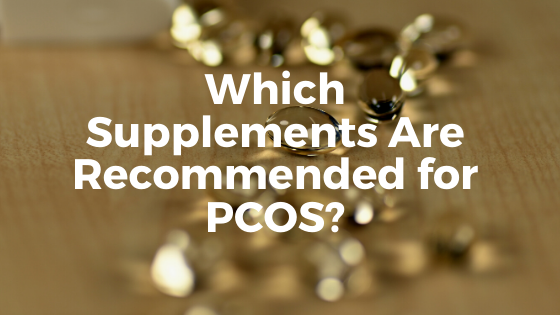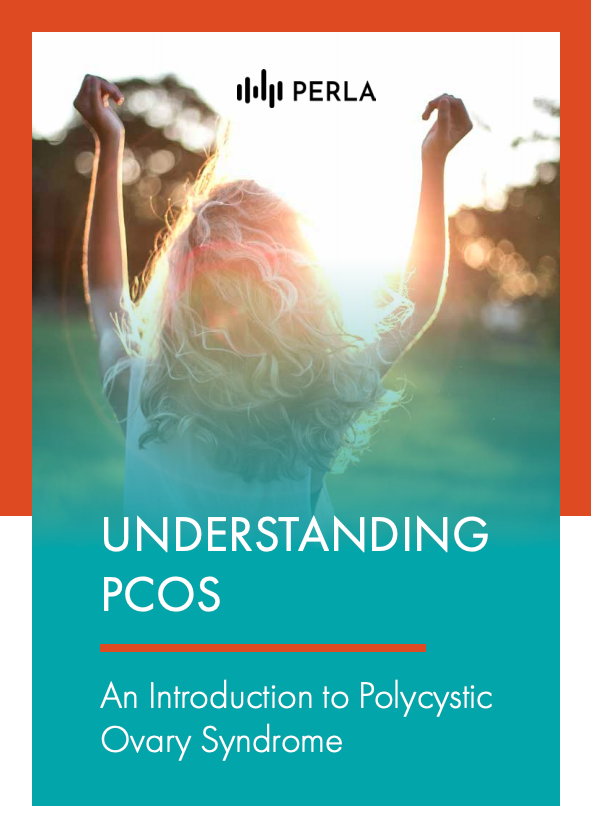You probably heard that nutritional supplements can help with PCOS. However, there is a lot of misinformation out there that may persuade you to make a purchase, often based on half-truths and exaggerated claims. Always consult with your doctor first before taking any supplements, as they can interact with your medication. We are highlighting the science behind some supplements below, so you can discuss them with your doctor and see whether they would be appropriate for you.
PCOS Supplements: Hope or Hype?
Do dietary supplements have a place in PCOS management? Some supplements could have a positive effect, but they can’t treat, cure, or prevent diseases. And some supplements can even harm you, as they can interact with medications and can be fatal in high doses.
The good news is that some supplements can help with PCOS symptoms and improve ovulation dysfunction. However, do not take any of them without consulting your doctor first. Here’s what science has to say about the different supplements that are often mentioned for PCOS:
Inositol
Out of all the supplements listed here, inositol is the only supplement that made it to the list of therapies in the official PCOS guideline. Although it is only mentioned as an experimental therapy, the guideline acknowledges the metabolic, hormonal, and ovulatory benefits of inositol.1
Inositol has been found to improve ovulation rate and menstruation cycles in women with PCOS.2 Another study showed that inositol triphosphate (InsP3) acts as a second messenger for various hormones such as insulin and follicle-stimulating hormone (FSH), which can makes it a useful supplement option for insulin resistance syndrome.3
Vitamin D and Calcium
You can get vitamin D3 (cholecalciferol) with adequate exposure from the sun and certain foods like egg yolks, tuna, salmon, mackerel, and other vitamin D-fortified food products. But if you are deficient, vitamin D and calcium supplements may help with your symptoms.
In a case-control study, 100 women with PCOS who struggled with infertility were treated with either metformin or metformin with calcium and vitamin D. Those who took the combination treatment have significantly decreased their BMI.4 Improvements in regulating menstrual abnormalities, follicle maturation, and fertility was also observed.
Omega 3 Fatty Acids
While fish oil has been linked to a number of health benefits, such as supporting the heart, reducing inflammation, and improving symptoms of depression, several studies indicate that omega-3 supplements can also decrease androgen levels in women with PCOS.5,6
By lowering their testosterone levels, women with PCOS may experience improvement in hirsutism and abnormal menstrual cycles. In another study, researchers recommend fish oil for treating PCOS with insulin resistance as well as high triglyceride and total cholesterol.7
Zinc
Zinc deficiency has been associated with the early stages of diabetes such as insulin resistance8, a condition in which the cells of the body stop responding to the action of insulin.
Normally, insulin moves sugar from the blood to the cells where they are used to make energy. When the cells do not respond to insulin correctly, a rise in both insulin and blood sugar levels can occur.
Since PCOS predisposes women to insulin resistance, zinc supplementation may help prevent the development of type 2 diabetes.9 Aside from that, zinc has been found to have beneficial effects on hirsutism and male pattern baldness.10 It also improves ovulation by helping ovarian follicles mature.11
Melatonin
Melatonin is a hormone produced by a small gland in the brain called the pineal gland. It may have a beneficial effect on fertilization and pregnancy rate, particularly during assisted reproductive therapy such as IVF. It seems to work by reducing oxidative damage in the pre-ovulatory follicles.12
Oxidative stress negatively impacts the number and quality of retrieved egg cells during in vitro fertilization.13 Women with PCOS who have failed fertilization in previous IVF cycles may benefit from melatonin supplementation.
Probiotics
There’s no question that the gut microbiome (the group of microorganisms in the gastrointestinal tract) has an essential role in maintaining a healthy body.14 However, the population of these microorganisms is affected by the food we eat, the medications we are taking, and many other factors.
In one animal study, examining the effects of excess androgen in the gut microbiota, the authors found that Lactobacillus supplementation could decrease androgen levels in the blood and improve the estrus cycle in rats.15 Take note that high-quality evidence for this claim is still lacking.
Key Takeaway
It is not wrong to consider supplements for PCOS, but make sure to always consult with your doctor first and discuss what would be best for you and for your specific situation. Supplements alone are not the answer – there is no miracle pill for PCOS. Lifestyle changes, according to experts, is still the most helpful way to deal with PCOS. Losing weight through diet and exercise can help with fertility issues and may reduce your risk of diabetes and cardiovascular diseases. We recommend working with a dietician that is experienced in PCOS to find a diet plan that works for you.
Sources:
- International Evidence-Based Guideline For The Assessment And Management Of Polycystic Ovary Syndrome 2018. Melbourne; 2018.
- Pundir, J., et al., Inositol treatment of anovulation in women with polycystic ovary syndrome: a meta-analysis of randomised trials. Bjog, 2018. 125(3): p. 299-308.
- Kalra B, Kalra S, Sharma JB. The inositols and polycystic ovary syndrome. Indian J Endocrinol Metab. 2016;20(5):720‐724. doi:10.4103/2230-8210.189231
- Firouzabadi R dehghani, Aflatoonian A, Modarresi S, Sekhavat L, MohammadTaheri S. Therapeutic effects of calcium & vitamin D supplementation in women with PCOS. Complementary Therapies in Clinical Practice. 2012;18(2):85-88. doi:10.1016/j.ctcp.2012.01.00
- Nadjarzadeh A, Dehghani Firouzabadi R, Vaziri N, Daneshbodi H, Lotfi MH, Mozaffari-Khosravi H. The effect of omega-3 supplementation on androgen profile and menstrual status in women with polycystic ovary syndrome: A randomized clinical trial. Iran J Reprod Med. 2013;11(8):665‐672.
- Oner G, Muderris II. Efficacy of omega-3 in the treatment of polycystic ovary syndrome. Journal of Obstetrics and Gynaecology. 2013;33(3):289-291. doi:10.3109/01443615.2012.751365
- Yang K, Zeng L, Bao T, Ge J. Effectiveness of Omega-3 fatty acid for polycystic ovary syndrome: a systematic review and meta-analysis. Reprod Biol Endocrinol. 2018;16(1):27. Published 2018 Mar 27. doi:10.1186/s12958-018-0346-x
- Chausmer AB. Zinc, insulin and diabetes. J Am Coll Nutr. 1998;17(2):109‐115. doi:10.1080/07315724.1998.10718735
- Beletate V, El Dib RP, Atallah AN. Zinc supplementation for the prevention of type 2 diabetes mellitus. Cochrane Database Syst Rev. 2007;CD005525.
- Jamilian M, Foroozanfard F, Bahmani F, Talaee R, Monavari M, Asemi Z. Effects of zinc supplementation on endocrine outcomes in women with polycystic ovary syndrome: a randomized, double-blind, placebo-controlled trial. Biol Trace Elem Res. 2016;170(2):271-278. doi:10.1007/s12011-015-0480-7
- Tian X, Diaz FJ. Acute dietary zinc deficiency before conception compromises oocyte epigenetic programming and disrupts embryonic development. Developmental Biology. 2013;376(1):51-61. doi:10.1016/j.ydbio.2013.01.015
- Olcese JM. Melatonin and Female Reproduction: An Expanding Universe. Front Endocrinol (Lausanne). 2020;11:85. Published 2020 Mar 6. doi:10.3389/fendo.2020.00085
- Fernando S, Rombauts L. Melatonin: shedding light on infertility?–A review of the recent literature. J Ovarian Res. 2014;7:98. Published 2014 Oct 21. doi:10.1186/s13048-014-0098-y
- Jandhyala SM, Talukdar R, Subramanyam C, Vuyyuru H, Sasikala M, Nageshwar Reddy D. Role of the normal gut microbiota. World J Gastroenterol. 2015;21(29):8787‐8803. doi:10.3748/wjg.v21.i29.8787
- Guo Y, Qi Y, Yang X, et al. Association between Polycystic Ovary Syndrome and Gut Microbiota. PLoS One. 2016;11(4):e0153196. Published 2016 Apr 19. doi:10.1371/journal.pone.0153196


